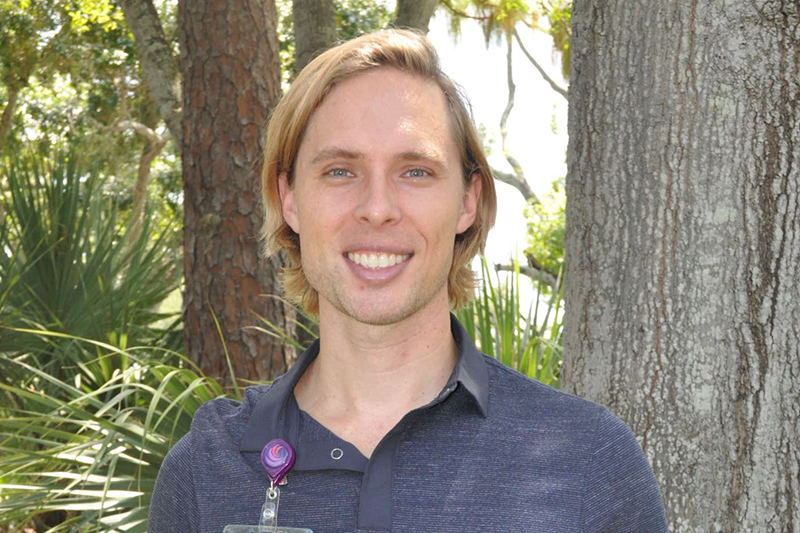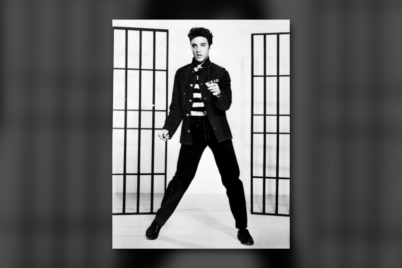Matthew “Matt” Frederick, MT-BC
BY LASHANTE KEYS, Empath Health Community Partnership Specialist
Music can calm minds, bodies and emotions. It can create a sense of relaxation and comfort in care, daily life and wellness.
Music therapy helps many
Matthew “Matt” Frederick, MT-BC is a board-certified music therapist of 11 years at Suncoast Hospice. He works with four south Pinellas County care teams caring for patients and families in their homes, nursing homes or assisted living facilities.
Music therapy sounded like an exciting field to pursue for Frederick.
“I always felt connected with music and knew I wanted to work with people. My guidance counselor in high school suggested music therapy. Having never experienced music therapy or worked with a therapist myself, I took a chance and went off to college to see what it was all about,” he shared.
This specialized clinical care treats people on many levels.
“Every aspect of a person is interconnected. The beauty of music therapy is that it is a whole-person experience. Social, emotional, physical, spiritual, cognitive and sensory perceptions can be integrated during each session. Backed by many years of research, it’s a wonderful modality to get right to the heart of a matter. It’s really profound. It’s really wonderful,” he explained.
Music therapists provide care for babies, children and adults in many settings, and there are all kinds of different applications. Frederick said they have found that babies who receive music therapy in the neonatal intensive care unit can heal and leave sooner.
“Music therapists are being used more in the autistic community, and that has been very effective. Music therapy is used in the education system working with kids who have cognitive, physical or any kinds of limitations,” Frederick explained.
Music therapy is used in physical therapy. If someone has a stroke, a music therapist can use rhythm that can help the legs and feet function better. It’s also used with people with eating disorders, addiction or with at-risk youth.
“It can be helpful at adult day centers for stimulation and support for older adults who are aging. There’s a music therapist I know who works at the VA (Veterans Administration). It is really helpful doing any kinds of therapeutic work with veterans. Post-traumatic stress is being addressed and it has been a really effective modality for them.”
Caring for Suncoast Hospice patients
Frederick’s treatment for patients has included song choice, passive listening, active music-making and improvisation, singing, playing an instrument, moving as if dancing, reminiscence, socialization, lyric analysis and songwriting. He has seen significant engagement and impact.
“Often, the patients I work with display many positive benefits from the sessions, and they anticipate future sessions. We often use live music but also use recorded music. There has been smiling, laughing, connection with memories, bonding with family members and even singing and speaking after not having done so for periods of time,” he noted.
Comfort and quality of life also improve for patients, he added. Patients can display signs of improved coping and ability to adapt to new environments, feel, express and process deeper emotions, relax and display diminished physical symptoms, such as pain, shortness of breath and anxiety.
In one case, playing gospel music resonated and helped a patient who was trying to adjust to life in a nursing home. Faith was a big challenge for her because she missed that part of her life.
When he arrived, she told him she had high anxiety, so he brought recorded music for her to listen to. As he played the gospel music, Frederick witnessed her shoulders drop and breathing slow down.
The patient told him that she felt more at peace and relaxed, and by the end of the visit, she had fallen asleep.
Supporting families
Frederick said families might also need self-care and relief when caring for their loved ones. They may experience caregiver fatigue, loss of knowing how to relate with a loved one when a disease changes that person or feelings of not doing enough, guilt, helplessness and anticipatory grief.
Music can also help soothe their well-being, and that is why Frederick tells people to use music that they connect with and enjoy. He encourages the daily, repeated use of recorded music in a safe and controlled environment, particularly the same song or album to strengthen the desired effect, such as relaxation.
He said the more you strengthen a response repeatedly, the more your brain and body will adapt to the new reality you are creating. Frederick also suggests pairing the music experience with another sense for an increased response, such as visualization, aromatherapy or massage.
“Working as a music therapist with Suncoast Hospice is a unique blessing. Being with people at this stage in their life is an honor, one that I continually learn from every day. I am blessed to celebrate with others, allow them a safe place to process their life or questions, bring a sense of hope or peace and unite relational and family bonds. It has broadened my view of life that we are all interconnected in some way, shape or form,” he expressed.
Learn more about Suncoast Hospice care, services and career opportunities at SuncoastHospice.org or call (727) 467-7423.









